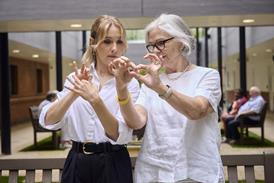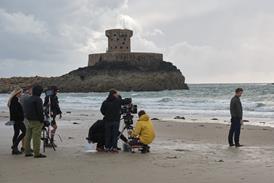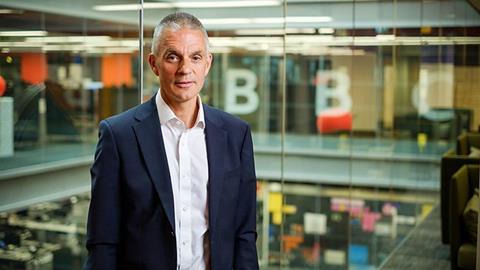BBC director general to warn of moves by Russian and Chinese state-funded media
Tim Davie is to warn that cuts to the World Service are helping Russia and China push “unchallenged propaganda” abroad.
Speaking at the Future Resilience Forum this afternoon, the BBC director general is expected to discuss how rapid advances in generative AI are making it easier to spread fake news at “a critical moment” for stability and democracy worldwide.
“Perhaps most worrying from the BBC point of view is that we can now see clear evidence of the fact that, when the World Service retreats, state-funded media operators move in to take advantage,” he is expected to say at the event, which will be attended by international political figures.
“What we are facing is an all-out assault on truth worldwide – and with it security, stability and democracy. And no one should underestimate the impact the BBC has had in the global news landscape to this point – as an entirely independent force.”
Davie - who earlier this year called for a “long-term funding solution” for the World Service from central government budgets – will sound the alarm that Russia and China have increased their funding in key markets in Africa, the Middle East and Latin America by around £6-8bn.
Russian media is particularly targeting Africa – where numerous cuts have been made within the World Service in the past couple of years – by investing in social media influencers to amplify propaganda and live-stream pro-Russia rallies. Russian-backed media is also transmitting in Lebanon on the radio frequency previously occupied by BBC Arabic.
“Our outstanding BBC Monitoring teams listened in to that Russian output on the day thousands of pagers and radio devices exploded. What they heard was unchallenged propaganda and narratives being delivered to local communities,” he will say.
“Had the BBC been able to retain our impartial radio output, these messages would have been much harder for local audiences to find. In this context, the further retreat of the BBC World Service should be a cause for serious global concern.”
In his RTS speech in March, Davie said: “We cannot keep asking UK licence fee payers to invest in [the World Service] when we face cuts to UK services. We will need to discuss a long-term funding solution for the World Service that comes from central government budgets.”
In April, the International Development Committee launched an inquiry on the future funding of the BBC World Service, following Davie’s call.
The BBC announced plans to cut 16% of roles (382) from the World Service in 2022, and move more content online in a bid to save £28.5m.


































No comments yet